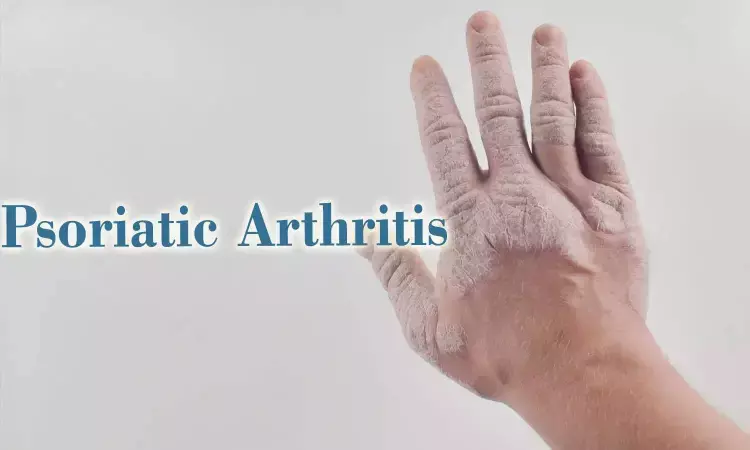- Home
- Medical news & Guidelines
- Anesthesiology
- Cardiology and CTVS
- Critical Care
- Dentistry
- Dermatology
- Diabetes and Endocrinology
- ENT
- Gastroenterology
- Medicine
- Nephrology
- Neurology
- Obstretics-Gynaecology
- Oncology
- Ophthalmology
- Orthopaedics
- Pediatrics-Neonatology
- Psychiatry
- Pulmonology
- Radiology
- Surgery
- Urology
- Laboratory Medicine
- Diet
- Nursing
- Paramedical
- Physiotherapy
- Health news
- Fact Check
- Bone Health Fact Check
- Brain Health Fact Check
- Cancer Related Fact Check
- Child Care Fact Check
- Dental and oral health fact check
- Diabetes and metabolic health fact check
- Diet and Nutrition Fact Check
- Eye and ENT Care Fact Check
- Fitness fact check
- Gut health fact check
- Heart health fact check
- Kidney health fact check
- Medical education fact check
- Men's health fact check
- Respiratory fact check
- Skin and hair care fact check
- Vaccine and Immunization fact check
- Women's health fact check
- AYUSH
- State News
- Andaman and Nicobar Islands
- Andhra Pradesh
- Arunachal Pradesh
- Assam
- Bihar
- Chandigarh
- Chattisgarh
- Dadra and Nagar Haveli
- Daman and Diu
- Delhi
- Goa
- Gujarat
- Haryana
- Himachal Pradesh
- Jammu & Kashmir
- Jharkhand
- Karnataka
- Kerala
- Ladakh
- Lakshadweep
- Madhya Pradesh
- Maharashtra
- Manipur
- Meghalaya
- Mizoram
- Nagaland
- Odisha
- Puducherry
- Punjab
- Rajasthan
- Sikkim
- Tamil Nadu
- Telangana
- Tripura
- Uttar Pradesh
- Uttrakhand
- West Bengal
- Medical Education
- Industry
EULAR releases updated recommendations clarifying treatment sequence for psoriatic arthritis

France: The European Alliance of Associations for Rheumatology (EULAR) has released an updated recommendation document for managing psoriatic arthritis (PsA) with pharmacological therapies.
New modes of action and more data on the safety and efficacy of existing drugs in psoriatic arthritis needed an update of the EULAR 2019 recommendations for the pharmacological treatment of PsA. Following EULAR standardized operating procedures, the process of recommendations development included a systematic literature review and a consensus meeting of 36 international experts in April 2023.
The updated recommendations, published in the BMJ journal Annals of the Rheumatic Diseases, comprise 7 overarching principles and 11 recommendations and provide a treatment strategy for pharmacological therapies. The new guideline covers the full range of the available disease-modifying anti-rheumatic drugs (DMARDs) -- including conventional, biologic, and targeted oral agents. It comes with an easy-to-follow algorithm, in words and with a graphical flow diagram, for which drugs to start or add and under what circumstances.
The recommendations are described below:
- Treatment should be aimed at reaching the target of remission or low disease activity, by regular disease activity assessment and appropriate adjustment of therapy.
- Non-steroidal anti-inflammatory drugs may be used to relieve musculoskeletal signs and symptoms; local injections of glucocorticoids may be considered adjunctive therapy.
- In patients with polyarthritis or those with monoarthritis/oligoarthritis and poor prognostic factors (eg, structural damage, elevated acute phase reactants, dactylitis, or nail involvement), a csDMARD should be initiated rapidly, with methotrexate preferred in those with clinically relevant skin involvement.
- In patients with peripheral arthritis and an inadequate response to at least one csDMARD, therapy with a bDMARD should be commenced.
- In patients with peripheral arthritis and an inadequate response to at least one bDMARD, or when a bDMARD is not appropriate, a JAKi may be considered, taking safety considerations into account.
- In patients with mild disease and an inadequate response to at least one csDMARD, in whom neither a bDMARD nor a JAKi is appropriate, a PDE4 inhibitor may be considered.
- In patients with unequivocal enthesitis and an insufficient response to NSAIDs (non-steroidal anti-inflammatory drugs) or local glucocorticoid injections, therapy with a bDMARD should be considered.
- In patients with a clinically relevant axial disease with an insufficient response to NSAIDs, therapy with an IL-17Ai, a TNFi, an IL-17 A/Fi, or a JAKi should be considered.
- The choice of the mode of action should reflect non-musculoskeletal manifestations related to PsA; with clinically relevant skin involvement, preference should be given to an IL-17A or IL-17A/F or IL-23 or IL-12/23 inhibitor; with uveitis to an anti-TNF monoclonal antibody; and with IBD to an anti-TNF monoclonal antibody or an IL-23 inhibitor or IL-12/23 inhibitor or a JAKi.
- In patients with an inadequate response or intolerance to a bDMARD or a JAKi, switching to another bDMARD or JAKi should be considered, including one switch within a class.
- In patients in sustained remission, tapering of DMARDs may be considered.
"These updated recommendations integrate all currently available drugs in a practical and progressive approach, which will be helpful in the pharmacological management of PsA," Laure Gossec, MD, PhD, of INSERM and Sorbonne Université in Paris, and colleagues wrote.
Reference:
Gossec L, Kerschbaumer A, Ferreira RJO, et alEULAR recommendations for the management of psoriatic arthritis with pharmacological therapies: 2023 updateAnnals of the Rheumatic Diseases Published Online First: 18 March 2024. doi: 10.1136/ard-2024-225531
Dr Kamal Kant Kohli-MBBS, DTCD- a chest specialist with more than 30 years of practice and a flair for writing clinical articles, Dr Kamal Kant Kohli joined Medical Dialogues as a Chief Editor of Medical News. Besides writing articles, as an editor, he proofreads and verifies all the medical content published on Medical Dialogues including those coming from journals, studies,medical conferences,guidelines etc. Email: drkohli@medicaldialogues.in. Contact no. 011-43720751


